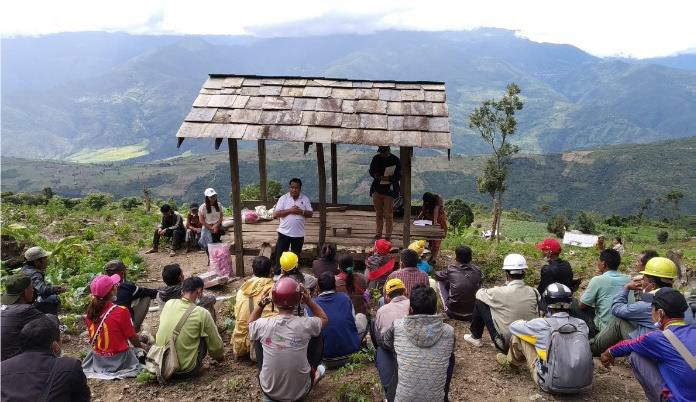
Experimenting Amidst Adversity
You don’t have to wait until conditions are perfect before you start an initiative to improve soil and water conditions. In fact, you really shouldn’t, as these program participants can tell you.
This three-year program comes to an end after a time of almost constant adversity – a global pandemic, a military takeover, resistance movements and military reprisals. Yet participant farmers have learned a great deal about ways to address soil erosion on their sloping land and improve their harvests and yields.
Farmers were organized into “Innovation Groups” and worked together to experiment with various solutions for their soil erosion challenges. They organized test plots using trenches, hedgerows and crop residues to control soil run off, then took measurements to determine soil fertility and erosion. They made observations about which treatments gave the best results, but also considered the monetary and labor costs involved, allowing them to draw their own conclusions about the best method to use on their own land.
Exposure visits to the farms of successful farmers allowed these women and men to network around cultivation systems, key cash crops, market linkages, business service providers, their experiences of practicing conservation solutions, and any challenges they faced.
In the end, 85% of the farmers in the innovation groups have increased their knowledge about soil and water conservation solutions and 83% are confident that these techniques can address their needs. Possibly the most important result of all is that the farmers have learned a great deal about the scientific method and will have these skills with them always.
Myanmar Tedim Program
Led by Catholic Relief Services and Local Partner KMSS Kalay
